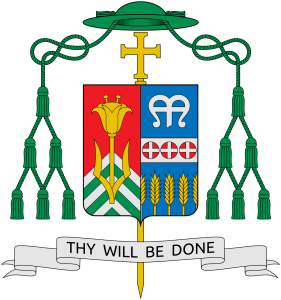
Article Title
Warnings about West Virginia bishop went unheeded as he doled out cash gifts to Catholic leaders
Link to Article: https://www.washingtonpost.com/investigations/warnings-about-wva-bishop-went-unheeded-as-he-doled-out-cash-gifts-tocatholic-leaders-/2019/07/03/7efa27f4-8d4c-11e9-b162-8f6f41ec3c04_story.html?noredirect=on&utm_term=.36a4eb68414b
Source: Washington Post
Author(s): Robert O’Harrow Jr. and Shawn Boburg
Date: July 3, 2019
Synopsis of / Excerpts from Article
According to the article:
But Bransfield’s conduct went unchecked for five more years. He resigned in September 2018 after one of his closest aides came forward with an incendiary inside account of years of sexual and financial misconduct, including the claim that Bransfield sought to “purchase influence” by giving hundreds of thousands of dollars in cash gifts to senior Catholic leaders.
“It is my own opinion that His Excellency makes use of monetary gifts, such as those noted above, to higher ranking ecclesiastics and gifts to subordinates to purchase influence from the former and compliance or loyalty from the latter,” Monsignor Kevin Quirk wrote to William Lori, the archbishop of Baltimore, in a letter obtained by The Washington Post.
The previously unreported Quirk letter and the complaints from parishioners raise questions about when Catholic leaders first knew of Bransfield’s conduct and why they took no action for years. They also reveal the roots of a church financial scandal that exploded into public view in June with a Washington Post account of the findings of a Vatican-ordered investigation of Bransfield.
Five lay investigators concluded early this year that Bransfield abused his authority by sexually harassing young priests and spending church money on personal luxuries, according to their final report and other documents obtained by The Post. Bransfield spent $2.4 million on travel, often flying in private jets, as well as $4.6 million in all to renovate his church residence, church records show. His cash gifts to fellow clergymen totaled $350,000, the records show.
Bransfield drew on a little-known source of money for the diocese — millions of dollars in annual revenue from oil wells in West Texas, on land that was donated to the diocese a century ago. The wells have yielded an average of about $15 million annually in recent years.
Bransfield wrote more than 500 checks to other clerics during his 13 years in West Virginia, gifts for which he was reimbursed by the diocese. Recipients who also received parishioner complaints were Archbishop Carlo Maria Viganò, then the nuncio, the pope’s ambassador to the United States; Cardinal Raymond Burke, then the leader of the church’s judicial authority in Rome; Archbishop Peter Wells, then a senior administrator in the pope’s Secretariat of State at the Vatican; and Lori, who as Baltimore archbishop has some nominal responsibilities for overseeing the West Virginia diocese and who later supervised the Vatican investigation launched after Quirk’s account.
Bransfield’s generosity with church money extended beyond the cash gifts. In 2013, Viganò accepted a half-hour ride on a jet chartered by Bransfield at a cost to the West Virginia diocese of about $200 a minute, documents and interviews show.